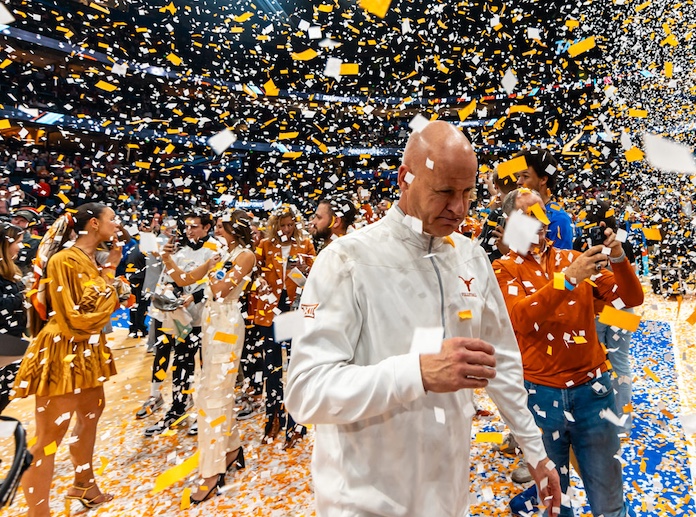When Texas and Nebraska faced off in the NCAA Division I Women’s Volleyball Championship title match this past December in Tampa, it featured two of the most prominent coaches in the sport.
Jerritt Elliott and John Cook have a combined seven national titles and won more than 83 percent of their matches over the 20-plus years they’ve been at their respective schools.
They are also two of the highest-paid coaches in college volleyball.
Including bonuses for reaching the national-title match and winning the Big Ten championship, Cook earned $978,750 for the 2023 season.
Elliot was paid $724,750 for winning the national title (Both numbers could be higher once camps and other perks are factored in).
However, those volleyball salaries pale in comparison to what the coaches in last year’s women’s basketball championship game were paid. LSU’s Kim Mulkey earned a reported $3.3 million for the 2022-23 season, while Iowa’s Lisa Bluder earned more than $1.14 million.
And then both basketball coaches received contract extensions. Mulkey signed a 10-year, $36 million deal, making her the highest-paid coach in her sport, while Bluder signed an agreement that increased her base pay to $1 million, which made her the ninth-highest amount in women’s basketball.
While volleyball continued to make great strides on the court, in the stands and on television in 2023, the sport still has ground to make up in budgets and salaries compared to other women’s sports, especially basketball.
“Women’s volleyball is booming, and comparing our salaries across the board to women’s basketball, they’re a lot less,” Creighton coach Kristen Bernthal Booth said.
While there is no single answer for why volleyball lags so far behind basketball and many male sports, however, almost every coach interviewed said one factor is that volleyball doesn’t have a comparable male sport.
Men’s and women’s basketball are the most straightforward pairing. Softball and baseball balance each other, and soccer is offered for both genders at many schools. Of NCAA sports, only field hockey, rowing, and bowling do not have male equivalents.
“We don’t have a male counterpart, and I think that’s probably the biggest reason,” Pitt coach Dan Fisher said. “Along with that, women’s basketball has been on TV much more than we have. The more we get on TV, though, it’ll continue…
Click Here to Read the Full Original Article at Volleyballmag.com…

